Adults with developmental disabilities don’t have it easy. But far too often in our society, this leads to people writing them off as helpless. Thankfully, a Los Angeles-area non-profit corporation is devoting themselves to helping developmentally disabled adults live their lives outside of the bubble to which they’re so often relegated. The organization is called Breaking Barriers. And as we found out in our latest Community Spotlight, they’re passionate about helping their participants help themselves.
Protection Over Promotion
Long before she was the co-founder and Associate Director of Breaking Barriers, Melissa Spicuzza was helping adults with developmental disabilities the only way she knew how. The trouble was that it left her uninspired. Even worse, it left those she supported discouraged.
In immediate need of employment, Spicuzza began her work with developmentally disabled adults after high school. A friend who recognized her gift for supporting others suggested she apply for a job allowing her to work with developmentally disabled adults in a casual residential setting. At first, Spicuzza was convinced that she was truly helping these individuals.
But with time, she began to feel burdened by constantly dissuading these individuals from pursuing their passions. She cites a medical model in which people with developmental disabilities need to be “fixed.” Under this model, the priority is to keep a developmentally disabled adult sheltered from the outside world. In essence, her job was to insulate them from potential failure or even danger.
Existing Instead of Living
People were coming to her for support. But after telling job seekers with whom she worked “no” over and over again, she began to question the efficacy of this model. Rarely did she watch anyone leave her office with a smile on their face. “Looking back, I can see those individuals were just existing; they weren’t actually living,” she admits.
Spicuzza distinctly recalls one individual with whom she worked closely for over a decade. When he’d visit her office, he’d say the same thing: “I want to have a job and my own apartment.” And just as often as he’d say it, she’d reply, “You’re not ready.”
A few years ago, she found out that this individual had passed away. Though she worked to the best of her abilities to enrich his life, Spicuzza mostly feels pain when she recalls those years. Because she sees herself as part of the system that restrained him from pursuing two basic things that he should have had the right to seek.
Finding a New Path Forward
Since then, Spicuzza has found a different medical model that she wholeheartedly believes is more effective in helping developmentally disabled adults live their lives. It’s a model that places more trust in them. Not just trust that they will succeed. But trust that if they fail, they’ll manage to get back up again.
The trajectory of Spicuzza’s service changed one fateful night when she was catching up with her old friend, Ben Sarcadi. Conversation turned to the course of their lives and their evolving passions. When Spicuzza confessed to the frustrating restrictions of her role, Sarcadi had an idea.
Noting Spicuzza’s determination and her numerous innovative ideas, Sarcadi realized funding was the main thing standing between them and a more effective model of helping developmentally disabled job seekers. And it just so happened that was where he excelled.
“The Dignity to Take Risks”
So, in 2018, Spicuzza and Sarcadi founded Breaking Barriers with Sarcadi as CEO and Spicuzza as Associate Director. Together with their devoted staff, they’re encouraging adults with developmental disabilities to fully engage with their community. The most common disabilities they see in their program are mild learning disabilities and varieties of Autism Spectrum Disorder.
This was a new world for former U.S. Navy sailor Sarcadi, but one to which he quickly acclimated. “When Melissa introduced me to the first group, I immediately thought, ‘These are my people’,” he smiles. And while Spicuzza uses her expertise to handle the programming, Sarcadi keeps the lights on with his deft business acumen.
Rather than shield their participants from the world around them, they connect them with resources to help them interact with their community in healthy ways. Finally able to replace the “no”s with “you’re ready”s, Spicuzza found her passion revitalized. As she succinctly puts it, “Everybody should have the right and the dignity to take risks.”
How Breaking Barriers Can Help
Breaking Barriers offers a wide range of services that Spicuzza and Sarcadi succinctly break down into three categories:
- Vocational: This typically includes connecting participants with career-related community resources, employment opportunities, job placement agencies, and California’s Department of Rehabilitation.
- Educational: Assistance with post-secondary education coordination. This includes narrowing down the right college or university, career mapping, and on-campus resources for developmentally disabled adults.
- Living an integrated independent life: This blanket-term encompasses a variety of services focused on daily life outside the home. Based on participant input, this could mean volunteer work for the community, physical fitness, a health plan, building and maintaining friendships, and attending social gatherings.
Businesses who hire Breaking Barriers participants also directly benefit. Just some of those benefits include:
- Adding much-needed diversity to the workplace.
- Empowering developmentally disabled individuals.
- Tax benefits.
Developmentally Disabled Adults Are Vital Contributors to Society
Spicuzza stresses that the work Breaking Barriers is doing benefits more than the program’s participants. “People with developmental disabilities aren’t second class citizens,” she emphasizes. “They bring diversity and enrichment to the community.”
Spicuzza and Sarcadi have seen enough to convince them that the developmentally disabled adults with whom they work are ready to engage meaningfully with the world around them. This means being a functional member of society. And though these individuals may require a different level of support, they still give back more than they take.
The Most Effective Way is Also the Harder Way
But the strong will and determination of Breaking Barriers’ participants doesn’t necessarily make the job easier. “We have some pretty tough days sometimes,” admits Spicuzza. But the ultimate goal of Breaking Barriers guarantees a road less traveled.
Fortunately, Spicuzza and Sarcadi are good at what they do. Sarcadi chalks this up to their creative solutions to unique challenges.
Despite all of the hard work that goes into making Breaking Barriers a reality, Sarcadi is quick to point out that the participants have already taken the hardest step. And that’s going through years of people telling them “no” in the face of their ambitions only to decide the answer is unacceptable.
Ultimately, the participants choose to show up at Breaking Barriers, do the hard work, and continue shooting for their goals. Spicuzza and Sarcadi listen to them and point them in the right direction. But it’s the participant that makes the magic happen in the end.
At Breaking Barriers, Risk is Reward
Working with developmentally disabled adults is a task that rarely ends with a “thank you.” But Sarcadi admits Breaking Barriers has provided him with some of the most rewarding work of his life. “People come to us broken and dejected,” he explains. “Within six months to a year, they’ve got a job and are a social butterfly.” It’s not a guarantee, but the success rate shows that Breaking Barriers is onto something.
Program participant Adriana Madrigal was in a different program that worked with developmentally disabled adults prior to coming to Breaking Barriers. The program, which likely used the older medical model Spicuzza eventually rejected, left Madrigal feeling patronized. “Breaking Barriers treats me like an adult; respectful,” she explains.
It may seem like Breaking Barriers is whipping miracles out of thin air. But being a non-profit, they rely heavily on public donations to continue their demanding work. You can ease their strain by following their official donation link and donating to Breaking Barriers today. You won’t just be donating to their future; you’ll be donating to your community’s.

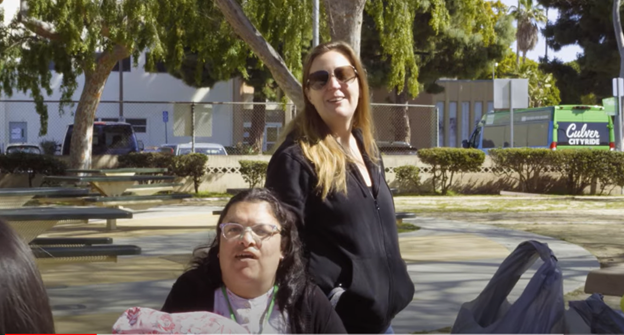
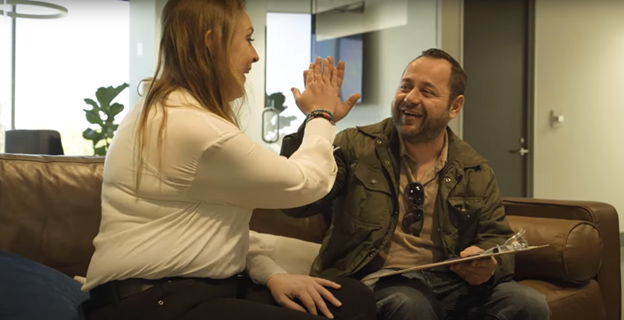
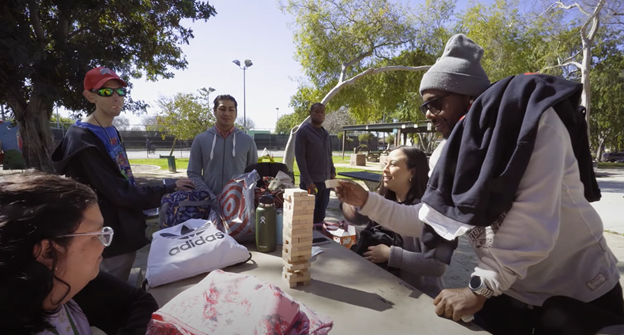
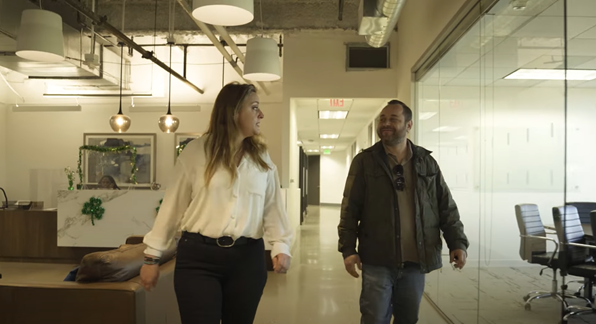
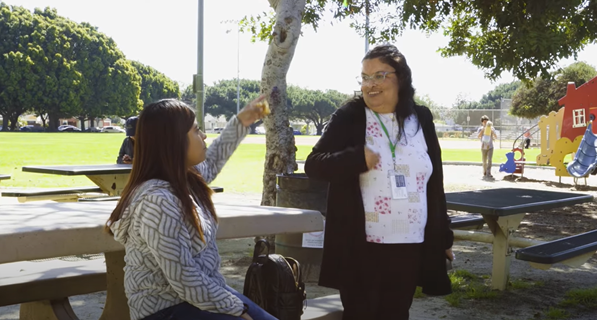
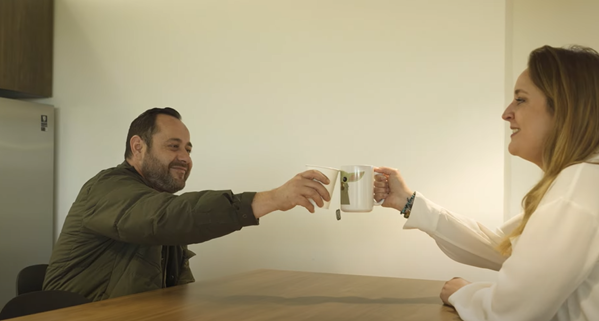
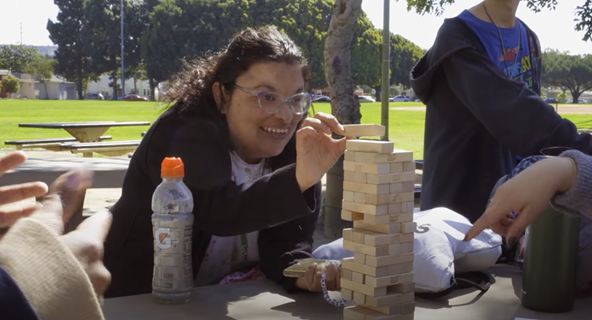
Comments
Post a Comment